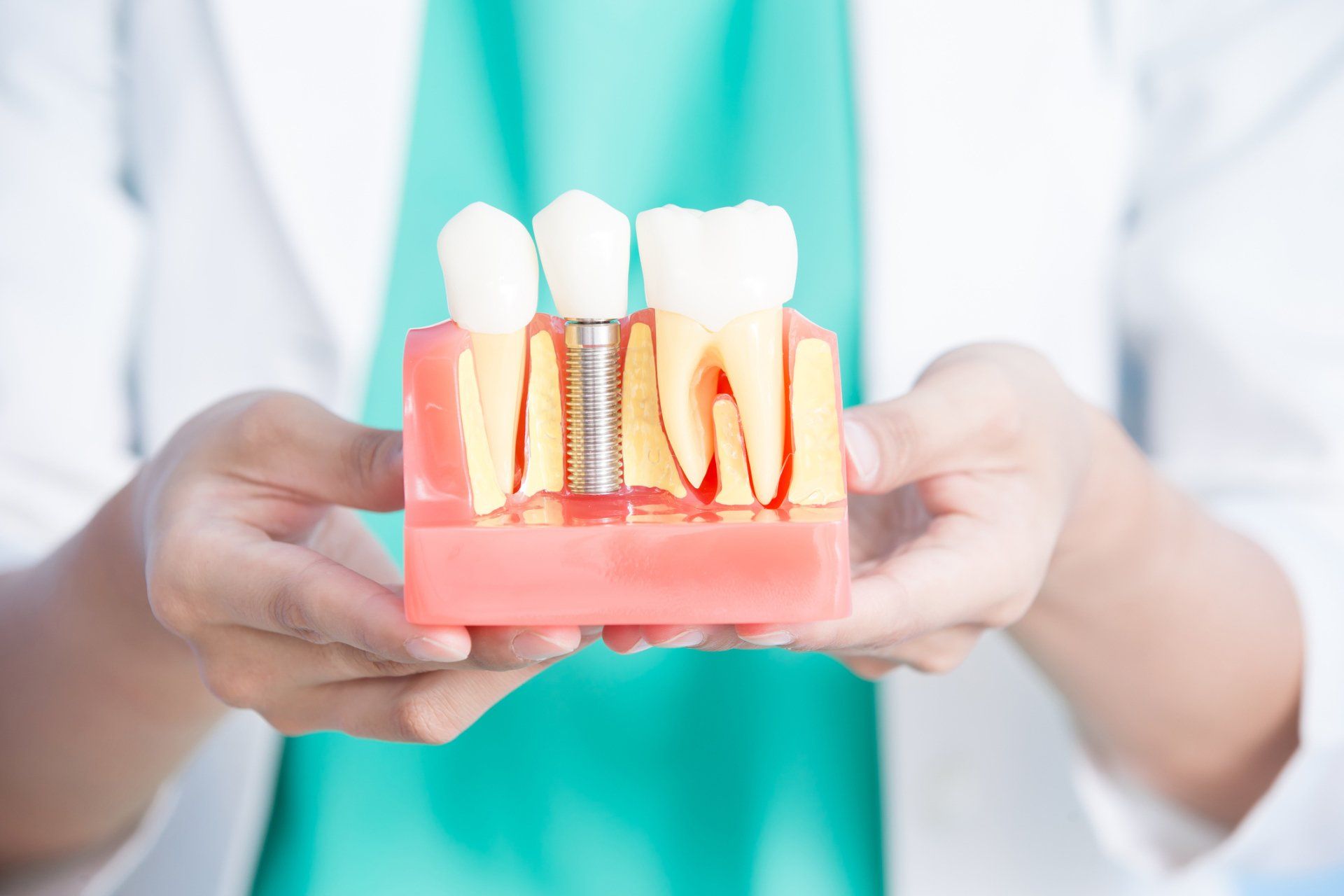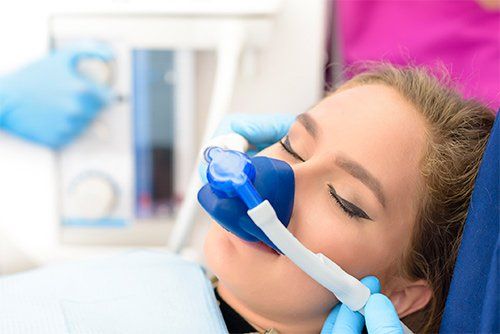5 Health Conditions That Could Cause Dental Implant Complications
- By Admin
- •
- 31 Jul, 2019
- •

If you plan to get a dental implant, you need to know all about the risks involved. While dental implant success rates are very high (around 95%), some patients are at higher risk of a complication. One common reason for higher risk is due to other health issues, such as a chronic illness.
Keep in mind that even if your implant does experience a complication, that doesn't necessarily mean it will fail. With some of these health conditions, you may simply need to stay on top of treatment to avoid affecting your implant. Study these five health conditions that could increase your risk of implant complications.
Keep in mind that even if your implant does experience a complication, that doesn't necessarily mean it will fail. With some of these health conditions, you may simply need to stay on top of treatment to avoid affecting your implant. Study these five health conditions that could increase your risk of implant complications.
1. Diabetes or Prediabetes
Diabetes is well-known to increase risk of gingivitis and periodontitis. Not only does diabetes reduce blood flow, making it harder for gums to heal, but it can also lower the effectiveness of your immune system. These same issues can sometimes cause implant problems.
For instance, reduced blood flow that slows healing can mean that the site of the implant doesn't heal well or that the bone doesn't fuse with the implant properly. And similar issues can develop in people with prediabetes as well. The risks of implant failure are greatest if you have uncontrolled diabetes, though.
For instance, reduced blood flow that slows healing can mean that the site of the implant doesn't heal well or that the bone doesn't fuse with the implant properly. And similar issues can develop in people with prediabetes as well. The risks of implant failure are greatest if you have uncontrolled diabetes, though.
2. Auto-Immune Diseases
Many auto-immune diseases have some very nasty side effects. Many such conditions exist, but what they have in common is an immune system that doesn't function correctly. Typically, the immune system has a hard time distinguishing what does and doesn't need to be attacked, and ends up attacking healthy tissue.
Some common factors of autoimmune conditions that may affect dental implant success rate include:
Some common factors of autoimmune conditions that may affect dental implant success rate include:
- Immune system problems
- Increased inflammation throughout the body
- Anti-inflammatory medications, which can result in bone density loss
3. Gum Disease
Although dental implants can replace teeth lost to periodontitis, gum disease can sometimes cause implant complications or failure. One common cause of implant failure is inflammation and infection around the implant site. This can be caused by an existing condition of periodontitis in some cases.
Gum disease is one of the more serious risk factors for implant failure; in fact, even with modern high-tech dental care, periodontitis could lower your implant's chances of success from 95% to 88%. You'll notice that this is still a very high success rate, which is why dentists still use implants as replacements when you lose teeth to periodontitis.
Gum disease is one of the more serious risk factors for implant failure; in fact, even with modern high-tech dental care, periodontitis could lower your implant's chances of success from 95% to 88%. You'll notice that this is still a very high success rate, which is why dentists still use implants as replacements when you lose teeth to periodontitis.
4. Sleep Disorders
One sleep disorder that can cause dental implant failure is obstructive sleep apnea. Sleep apnea can cause nighttime tooth grinding, which can crack and chip healthy teeth and implants alike. In fact, this problem can cause a variety of complications, including cracked implants, screw loosening, and more.
If you suspect you may have sleep apnea, you may want to get a sleep study before having your implant procedure. And if you grind your teeth at night, talk to your dentist about getting a nightguard to protect your natural teeth as well as any implants.
If you suspect you may have sleep apnea, you may want to get a sleep study before having your implant procedure. And if you grind your teeth at night, talk to your dentist about getting a nightguard to protect your natural teeth as well as any implants.
5. Hormone Imbalances
Hormonal issues are quite common in women; for example, menopause causes a decrease in available estrogen, which can cause oral health problems in a variety of ways. For example, these hormonal imbalances can lead to dry mouth (which can contribute to gum disease) or to bone loss in the jaw, which can make it harder for implants to fuse into the jawbone.
These are just five of the health conditions that could cause or facilitate complications with a dental implant. However, even if you have one of these health issues, you may still be a good candidate for an implant. You may just have to take extra care, perhaps by increasing hygiene to lessen chances of infection. Talk to your dentist about your risk levels.
Premier Dentures & Implants provides high-quality, up-to-date dental services and procedures including dentures and implants. Get in touch today to schedule your next dental procedure.
These are just five of the health conditions that could cause or facilitate complications with a dental implant. However, even if you have one of these health issues, you may still be a good candidate for an implant. You may just have to take extra care, perhaps by increasing hygiene to lessen chances of infection. Talk to your dentist about your risk levels.
Premier Dentures & Implants provides high-quality, up-to-date dental services and procedures including dentures and implants. Get in touch today to schedule your next dental procedure.
If you understand what to expect at your dental implant consultation, you can ease some of that anxiety. Read this blog to learn more.
There are a few types of dental implants available for your needs. Contact us at Premier Dentures and Implants to schedule a dental implant consultation.











